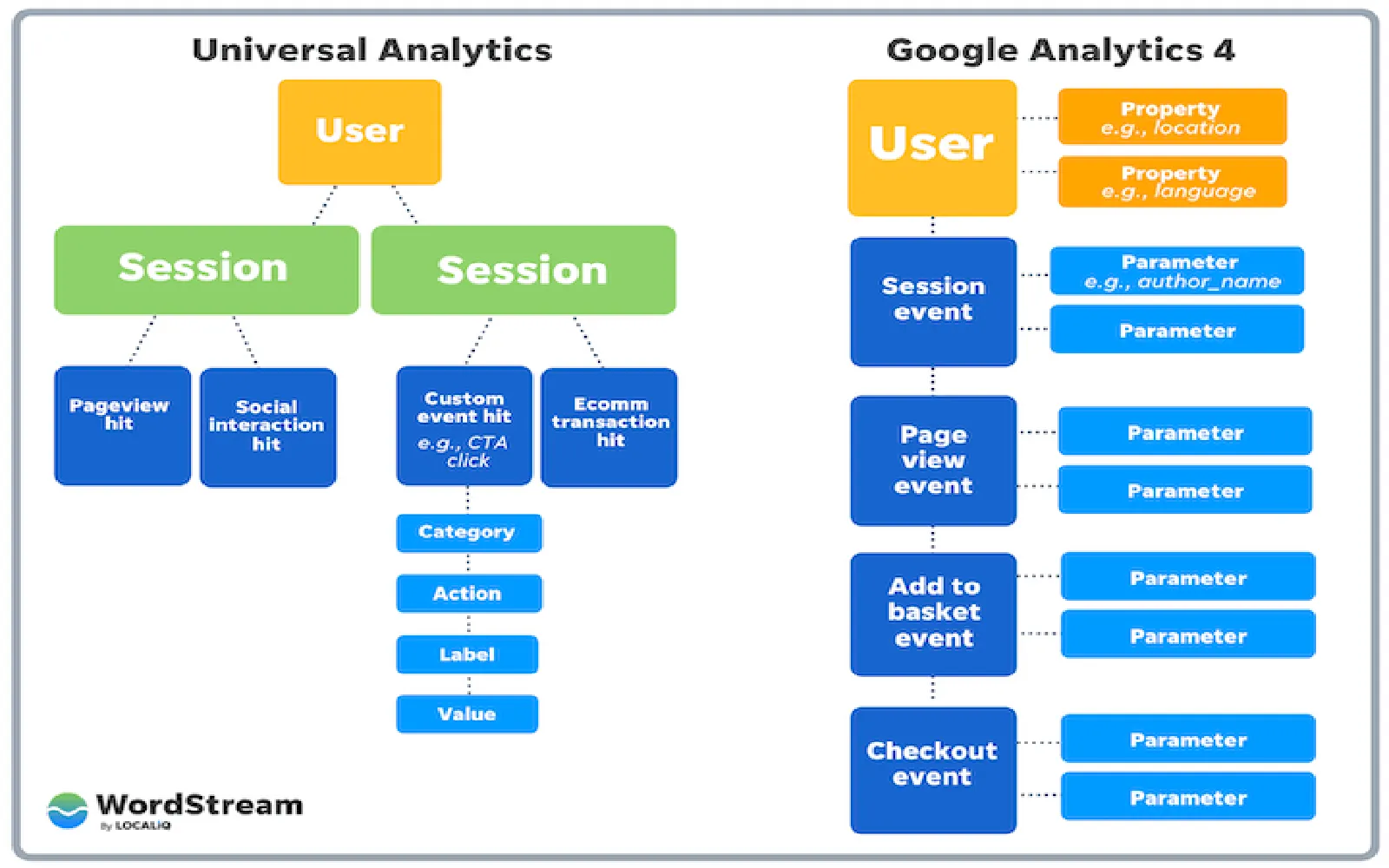Google Analytics has undergone a significant transformation with the introduction of Google Analytics 4 (GA4). This new version brings a host of features that enhance tracking capabilities, improve user experience, and provide deeper insights into user behavior. In this article, we will explore the key differences between GA4 and Universal Analytics, focusing specifically on what’s new and how these changes impact the way we analyze data, particularly in relation to ''referrerAdCreative''.
Key Differences Between GA4 and Universal Analytics
One of the most prominent differences between GA4 and Universal Analytics is the data model. Universal Analytics primarily uses a session-based model which focuses on page views and sessions, while GA4 adopts an event-driven model. This shift allows for a more nuanced understanding of user interactions, enabling businesses to track specific actions more effectively.
Event Tracking Made Easier
In GA4, every interaction is considered an event. This includes page views, button clicks, and other user interactions. This approach simplifies the tracking setup, as there is no need to configure complex tracking parameters as in Universal Analytics. For instance, if you are interested in tracking the performance of ''referrerAdCreative'', you can easily set up events that capture the interactions with these ads.
Enhanced User Privacy Controls
With growing concerns around user privacy, GA4 has implemented features that align with evolving regulations such as GDPR and CCPA. Users now have more control over their data, and businesses can configure settings to comply with these regulations. This is particularly important for tracking ''referrerAdCreative'', as marketers need to ensure they are respecting user privacy while still gaining insights into ad performance.
Cross-Platform Tracking
GA4 excels in cross-platform tracking, allowing businesses to analyze user behavior across websites and mobile apps seamlessly. This means that if a user interacts with an ad on social media and later visits your website, you can track their journey in one consolidated view. This holistic approach is invaluable for understanding the full impact of your ''referrerAdCreative'' campaigns.
AI-Powered Insights
Another standout feature of GA4 is the integration of machine learning and AI-driven insights. GA4 can automatically surface insights, such as trends in user behavior or potential anomalies in data. For example, if a particular ''referrerAdCreative'' is driving unusually high traffic, GA4 can alert you, allowing for timely adjustments to your marketing strategy.
Data Visualization and Reporting
The reporting interface in GA4 has been revamped to provide a more intuitive experience. Users can create customized reports tailored to their specific needs, and the new exploration tools allow for deeper dives into data sets. Below is a comparison of the reporting capabilities in both versions:
| Feature | Universal Analytics | Google Analytics 4 |
|---|---|---|
| Reporting Interface | Standardized reports | Customizable and event-driven |
| Real-time Data | Basic real-time data | Advanced real-time insights |
| Attribution Models | Last-click attribution | Data-driven attribution |
Improved Attribution Models
GA4 introduces more sophisticated attribution models that allow for a better understanding of how different marketing channels contribute to conversions. This is particularly beneficial for analyzing the performance of ''referrerAdCreative''. Instead of relying solely on last-click attribution, GA4 uses data-driven attribution models, which distribute credit across multiple touchpoints in the customer journey.
Integration with Google Ads
GA4 has improved integration with Google Ads, making it easier for marketers to track the performance of their campaigns. By linking your Google Ads account with GA4, you can gain insights into how your ''referrerAdCreative'' impacts user behavior and conversions. This integration allows for better optimization of ad spending based on real-time data.
Conclusion
In summary, Google Analytics 4 represents a significant advancement over Universal Analytics, particularly in terms of tracking capabilities, user privacy, and data analysis. The focus on events rather than sessions, enhanced cross-platform tracking, and AI-powered insights provide businesses with the tools they need to make informed decisions. For marketers focusing on ''referrerAdCreative'', these features present new opportunities to analyze performance and optimize campaigns effectively. As digital marketing continues to evolve, adapting to GA4 will be crucial for staying ahead in the competitive landscape.





